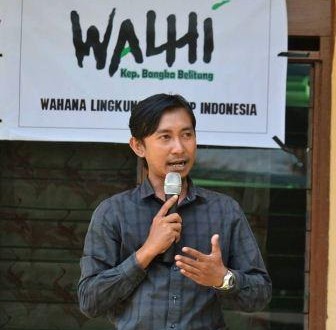A potential wood supplier for one of the world’s largest pulp and paper mills does not have the consent of local communities

A joint investigation report released on Wednesday, March 8 2017 by Indonesian NGOs titled “Local Communities Reject PT. Bangun Rimba Sejahtera, Potential Supplier to APP’s OKI Mill”, details the opposition of local communities to the development of industrial pulpwood plantations on their lands in Banka Belitung, Indonesia.
Asia Pulp and Paper (APP) is considering purchasing wood from these plantations as a fiber source for its controversial new mill PT. OKI Pulp and Paper mill, despite the ongoing conflicts. The OKI Pulp and Paper mill is one of the world’s largest and has been criticised over concerns that its high demand for wood fiber will drive new land conflicts, breaking APP’s social and environmental commitments.
The report shows that Asia Pulp & Paper (APP) is currently considering PT. Bangun Rimba Sejahtera (BRS) as a fiber supplier for its OKI mill, despite BRS being rejected by a majority of the communities living within and adjacent to the BRS plantation concession.
“One hundred thousand people could be negatively affected by these plantations,” said Ratno Budi of Walhi Banka Belitung. “A majority of these communities have declared their objection to the plantation and to the presence of BRS on their community lands.”
Communities have organised demonstrations and written letters and petitions to government officials opposing the BRS plantation, as their customary lands, which will be affected, are the primary source of livelihood for most community members. The report shows that communities were not adequately consulted about the project and did not give their consent to the plantation. It also documents how BRS has included police and army in public meetings, with an intimidating effect on local residents.
“APP has made a commitment that any new concessions or fiber used to supply the OKI mill will respect the rights of affected communities to give or withhold their Free, Prior and Informed Consent (FPIC),” said Aidil Fitri, director of HaKi. “If APP brings BRS on as a supplier it would clearly be breaking its own sustainability policies and its promise to respect human rights.”
“There is a lot of concern that the OKI mill will drive more social conflict, peatland drainage and deforestation,” said Lafcadio Cortesi of Rainforest Action Network. “This is a test case for APP. Pulp and paper customers and investors will be watching whether APP will be true to its word and avoid suppliers like BRS.”
